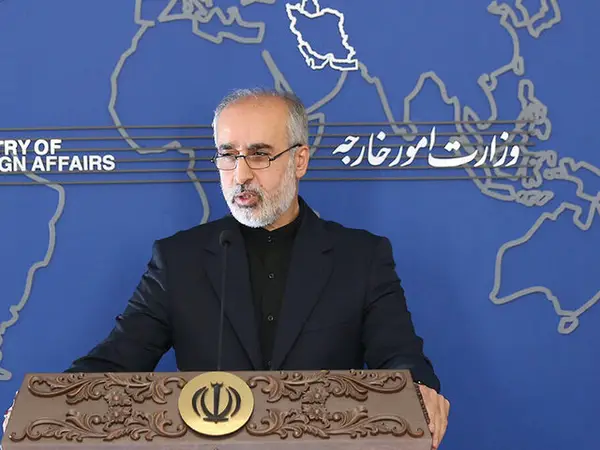Iran’s foreign ministry Monday reiterated Tehran’s harder position in the nuclear talks, insisting on guarantees and an end to a probe into its past activities.
The ministry’s spokesman Nasser Kanaani told reporters that Tehran has once again transmitted its latest to the European Union, which acts as a mediator, and is awaiting a response from Washington.
United States on August 31 called Iran’s latest response “not constructive”, as soon as it was delivered on the same day.
Kanaani said that Iran’s demands regarding guarantees from the United States had some success in terms of “strengthening” the existing draft agreement text circulated by the EU. He stressed that the foreign ministry’s most important task is to secure guarantees.
Iran has been asking for US guarantees not to leave a new nuclear agreement, as it did in 2018 when former President Donald Trump withdrew from the Joint Comprehensive Plan of Action, JCPOA. Reports in recent weeks have indicated a variety of Iranian demands, such as compensation if the US leaves the agreement or a pledge not to reinstate sanctions, but the Biden Administration has responded that it can only offer assurances to Tehran for the duration of its current term.
Almost all Republicans in the US Congress and many Democrats have serious reservations about a new nuclear deal with Iran that would lift sanctions and provide hundreds of billions of dollars to a government that they believe poses a danger to US interests and its regional allies. Republicans have vowed to “tear up” any agreement President Joe Biden concludes with Iran short of a complete dismantling of its nuclear program and a major shift in its regional policies.
Kanaani also highlighted another demand that Tehran has put forth in recent weeks. He insisted that a probe by the International Atomic Energy Agency (IAEA) should be shelved before a deal is implemented. The IAEA is investigating uranium particles its inspection uncovered at three Iranian nuclear sites used prior to 2003, when Tehran was pursuing an undeclared research and development program.
Iran’s public pronouncements in the past two weeks have been shifting between emphasizing ‘guarantees’ and stopping the IAEA investigation as pre-conditions for a deal.
The foreign ministry spokesman also emphasized another argument being pushed by Iranian officials that Europe is facing an energy crisis this winter and is desperate for a nuclear deal with Iran. Presumably, if US sanctions are lifted Iran can supply energy to Europe in the wake of the crisis created by Russia’s invasion of Ukraine.
However, this is a false proposition built on the premises that Iran can supply natural gas to Europe in the near future.
First, Iran’s gas production is not enough even for its domestic consumption, because of a lack of Western technology and capital. Natural gas output is gradually declining while domestic consumption is rising.
In fact, Iran might soon be forced to import gas if it does not invest $50 billion in its production fields, which need technology only Western countries can provide.
Second, even if Iran had additional gas to export to Europe, there are no land pipelines ready and no LNG infrastructure to ship the gas via the sea.
Kanaani claimed that Europe has asked Iran for help to resolve the energy crisis and also mediate with Russia to stop the war in Ukraine, but so far there have been no statements by European officials in these regards.
